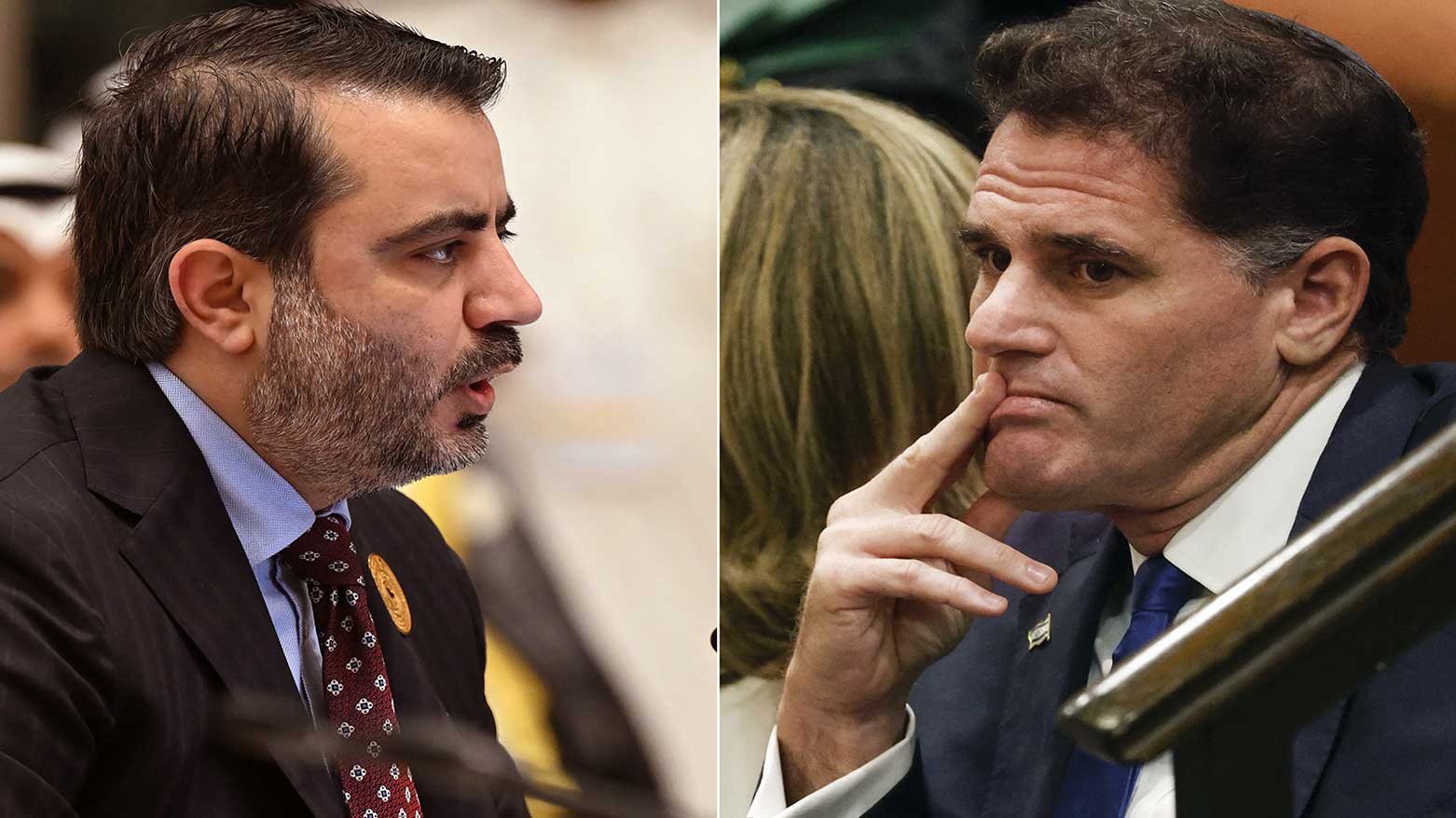US-Mediated Paris Talks Aim to De-escalate Israel-Syria Tensions Following Sweida Violence
The rare encounter, reportedly held with U.S. facilitation, aimed to “contain the escalation” after Israel launched airstrikes earlier this month targeting Damascus and the Druze-majority Sweida province.

ERBIL (Kurdistan24) — A U.S.-mediated meeting between Syrian and Israeli officials took place in Paris this week to address escalating tensions in southern Syria following deadly sectarian clashes and Israeli military strikes, a Syrian diplomatic source told state television on Saturday.
The rare encounter, reportedly held with U.S. facilitation, aimed to “contain the escalation” after Israel launched airstrikes earlier this month targeting Damascus and the Druze-majority Sweida province. Israel claimed the operations were conducted in support of the religious minority and to reinforce its call for a demilitarized southern Syria.
According to a diplomatic source cited by AFP, the Paris meeting brought together a delegation from Syria’s Foreign Ministry and General Intelligence with Israeli representatives.
Discussions focused on “recent security developments” and the possibility of reviving the 1974 disengagement agreement under international guarantees, while also demanding the immediate withdrawal of Israeli forces from newly occupied positions in southern Syria.
On Thursday, U.S. special envoy for Syria Tom Barrack confirmed he had held discussions in Paris with unnamed Israeli and Syrian officials. A senior diplomat previously told AFP that Barrack would be facilitating dialogue between Syria’s Foreign Minister Asaad al-Shaibani and Israel’s Minister of Strategic Affairs, Ron Dermer.
The Paris meeting, the Syrian source said, did not result in any binding agreements but served as an initial consultation to de-escalate tensions and reopen communication lines. Further meetings are reportedly planned, with the Syrian delegation reiterating that the country’s sovereignty and territorial integrity are non-negotiable.
The talks followed a dramatic spike in violence in Sweida province, where clashes erupted on July 13 between Druze fighters and Sunni Bedouin tribes. Government forces later intervened on behalf of the latter group, witnesses and observers told AFP. According to the Syrian Observatory for Human Rights, more than 1,400 people—most of them from the Druze community—were killed in just one week, before a ceasefire was reached last weekend.
On Saturday, French President Emmanuel Macron said on X that he spoke with Syrian President Ahmed al-Sharaa and welcomed the ceasefire as “a positive sign,” while warning that the violence highlighted “the extreme fragility” of Syria’s post-conflict transition.
Sharaa, in a statement from the Syrian presidency, attributed the unrest in Sweida to “armed outlaw groups opposing the state,” and rejected what he called foreign efforts—specifically by Israel—to exploit the unrest. He emphasized that Sweida remains an integral part of the Syrian state.
While Israel and Syria remain technically at war since 1948, contacts between the two sides have increased in recent months. Before the Paris meeting, Syrian and Israeli officials reportedly held an earlier round of indirect talks in Baku on July 12, coinciding with President Sharaa’s visit to Azerbaijan.
Following the ousting of longtime President Bashar al-Assad in December, Israel advanced its troops into a United Nations-patrolled buffer zone in the Golan Heights and began pushing for the complete demilitarization of southern Syria. Israel has also ramped up airstrikes inside Syria to prevent advanced military equipment from falling into the hands of the Islamist-led Syrian administration.
Despite the lack of a formal breakthrough in Paris, the meeting marks a significant shift in diplomatic efforts to prevent further deterioration in southern Syria.
